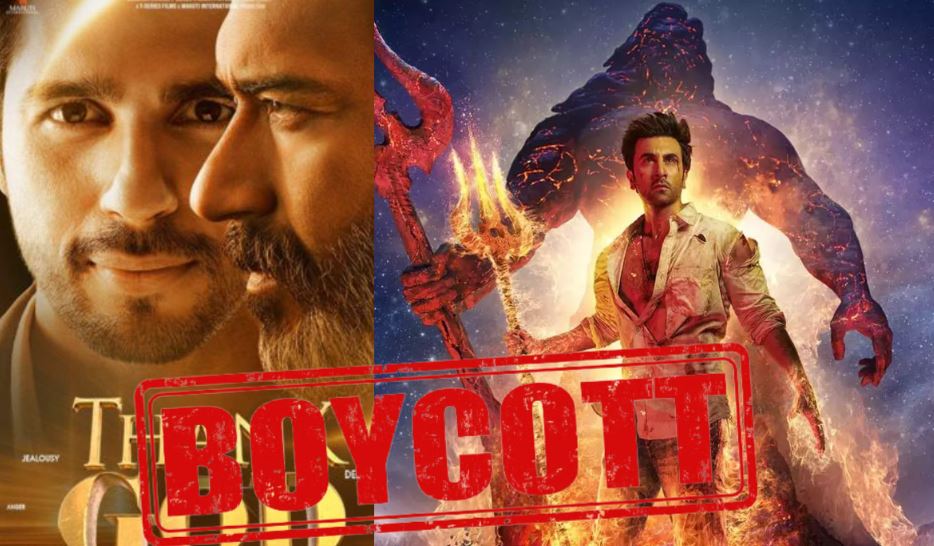Rise of Bollywood Boycott/Cancel Culture

Decoding The Bollywood Boycott Culture
Bollywood and controversy are two flip sides of the same coin. Since its inception, from religious groups protesting to ban a movie to actors getting involved in various tiffs, the Hindi film industry has seen a lot of ups and downs. And now, the cancel culture has taken Bollywood by storm. Nowadays, many people are trending different hashtags on social media and urging everyone to boycott many movies for various reasons. The threat of boycott culture is real because the entertainment industry is struggling with poor box office results.
The Start of the Boycott Culture
Bollywood is the world’s most significant film industry, but the entertainment industry has collapsed post-pandemic. The entertainment industry has become the target of fury and repulsion, with recently released top actors being trolled and a victim of boycott culture. There are numerous reasons for this cancel culture trending on social media, be it religious remarks, nepotism, frivolous jokes, wrong depiction of historical events or abuse, past remarks made by the actors, lousy copy of any film, etc.
The Bollywood cancel culture is getting harsher daily as many movies are in hot water. Two years ago, after the death of renowned Bollywood actor Sushant Singh Rajput, fans trended #BoycottBollywood because they believed that Bollywood Mafias were behind his death, and he lost a lot of movies due to nepotism. Then, star kids faced a lot of hatred and were trolled.
Back in 2020, the movie Sadak 2 faced a lot of hatred, and people called it “a product of nepotism.” Many movies, like Coolie No. 1, Sania, Sardar Ka Grandson, etc., had poor box office income and were declared a flop. However, after some time, the situation started to become a bit better until recent days.
The cancel culture again came to light recently due to Aamir Khan’s past comment about intolerance. In a 2015 interview, Aamir Khan said that he and his ex-wife feel insecure in India due to growing intolerance. The interview video resurfaced, and netizens decided to boycott him and his wife. Khan’s latest movie, Laal Singh Chaddha, was the worst affected and many shows had to be cancelled due to low audiences. A few days ago, the movie’s lead actress, Kareena Kapoor Khan, said she doesn’t believe in the boycott culture. However, in a recent interview, she urged people not to boycott her movie and watch it.
Hrithik Roshan, who tweeted in favour of Laal Singh Chaddha, also became a victim of the boycott culture as netizens trended to cancel his movie, Vikram Vedha, even before the movie’s release. Darlings, Alia Bhatt’s recent movie, was also a part of the boycott culture because, as per the netizens, her movie Darlings promoted domestic violence against men. Akshay Kumar’s Raksha Bandhan also was a victim of boycott culture because of Kanika Dhillon’s old tweet.
Bollywood’s History Of Cancelling Films
Cancel culture is nothing new in India. In its primitive days, many Bollywood movies were cancelled for sensory reasons. Back in the 70s, kissing scenes were not allowed to be shown on the screen. Siddhartha, a mystery drama film based on the 1922 novel of the same name, was cancelled by the Sensory Board due to some objectionable scenes. Guide, a movie based on RK Narayan’s famous novel, was also cancelled as it showed a woman’s infidelity, which was unacceptable.
The movie, Aandhi was banned during the Emergency in 1975 as there was a buzz that the movie was based on the life of Indira Gandhi; the Congress claimed that the movie showed Gandhi in a bad light and elections were near.
Then VS Now
With the change in time, there is a big difference in netizens’ treatment of actors. The audience used to be excited about any film’s new release, but things have changed. Now, netizens immediately decide to cancel any actor’s movie based on political or religious remarks. Therefore, actors are now getting more conscious than before. Over the years, the audience has evolved, and now, they are not interested in viewing stale content. Netizens feel that Bollywood is repetitive and does not offer any fresh content. This is also one of the reasons for Bollywood’s failure in recent times.
The Future Of Bollywood and Various Stakeholders Being Affected By the Boycott Culture
Boycotting a film doesn’t mean boycotting the actors. It means boycotting all those associated with that film. Various stakeholders get affected by an actor’s comment. The crew, the writers, the tech, and everyone’s hard work goes in vain. Various theatre owners are also getting victimised due to cancel culture. Also, films are a great medium to generate revenue for the government, and this boycott culture will also adversely affect India’s economy.
Although the digital space provides anonymity, it is also toxic. There’s a battle going on between the industry and the audience. No one is likely to be immune from this boycott culture, which could lead to the end of an era of Bollywood if the matter goes out of hand. And it is unlikely that this boycott culture creating troubles for the entertainment industry will heal anytime soon.
